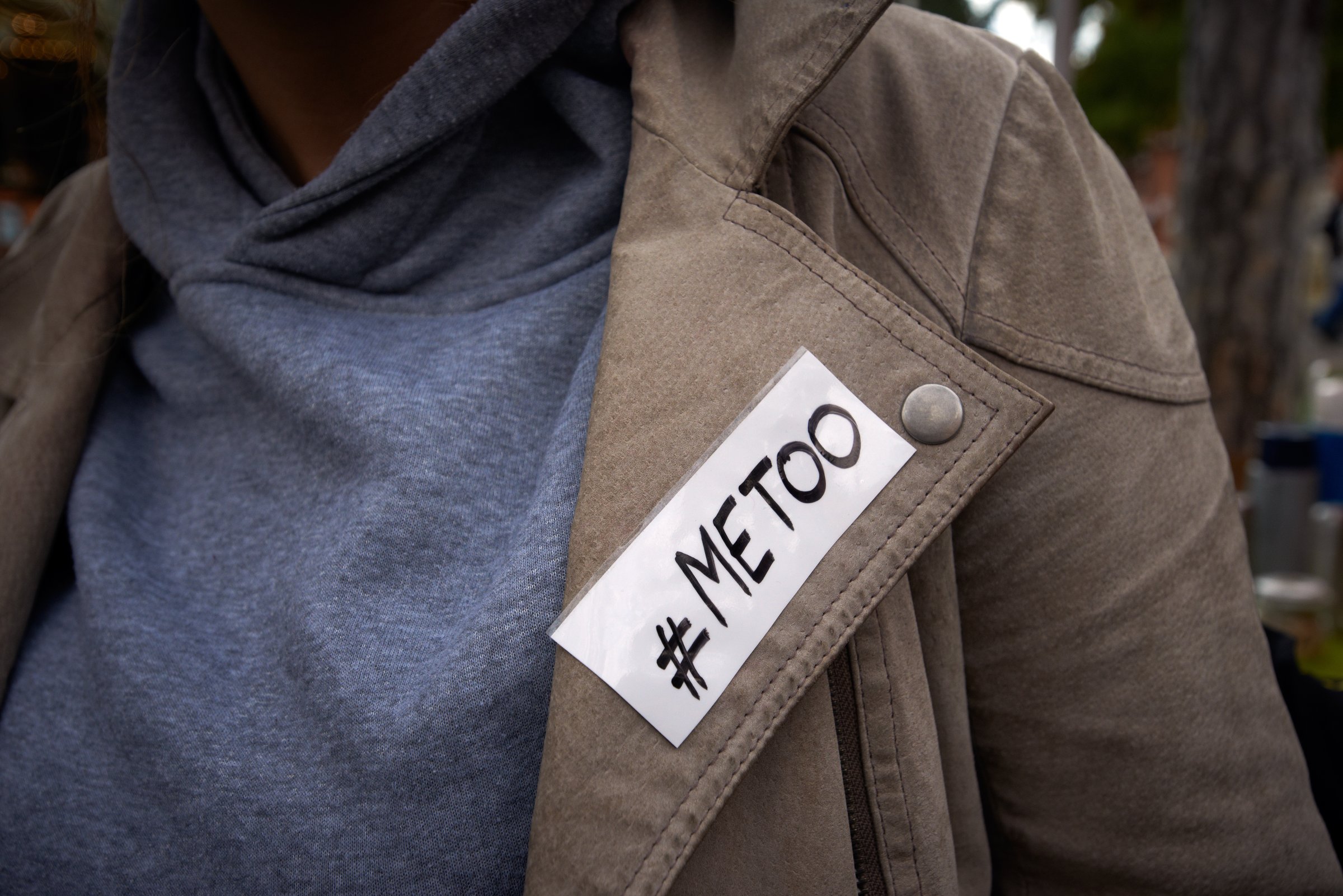
The #MeToo movement on social media has awakened many Americans to the reality that sexual violence and harassment are prevalent in all corners of the country and take many different forms. Sometimes, harassment looks like an unwanted grope on a street corner. Sometimes, it looks like a boss making uncomfortable demands, or a friend who doesn’t listen when you say “no.” It looks like the fear, anger and shame felt for years afterward by those who are targeted. While millions of women responded #MeToo, we know sexual violence and harassment happens in all communities. We know that transgender individuals suffer at alarming rates, and that men and boys are victimized, too.
As elected officials from all parts of this country, we have chosen to come together, because yes, we too, have experienced harassment or assault. And we are saying enough. We, too, want to see change. And we are taking action to transform #MeToo from a social media movement into real change. Many people might assume our experiences as state legislators have been different, but they have not. As over 100 women in the California Capitol community put it, “No matter a woman’s age, weight, religion, sexual orientation, race, social status or position of power, she is not insulated from this behavior. It is pervasive.”
As we read the stories being shared with #MeToo, they felt all too familiar. In our experience as female legislators, sexual harassment and violence also happens in state capitols. In some capitols, it looks like a male legislator offering mentorship to a staffer, then explaining his “open marriage” and asking if she’s single. In others, it looks like men making promises about our jobs in exchange for our silence. Or it looks like male legislators manipulating the stories of sexual assault survivors to push harmful legislation that marginalizes immigrant communities. It can look like a higher-ranking legislator telling a rank and file legislator her bills would go further in return for sexual favors. It can look like a hand on your thigh below your skirt under a capitol dome.
We see it. We live it. We power through it. Every day. And we are saying enough. That’s why we have spoken out, sponsored legislation and demanded change. We need change in our state houses, in our schools and on our campuses, on our streets, and in our workplaces. And big change starts with the states.
It’s apparent that leadership to address sexual violence and harassment will not come from the federal level under the current administration. But in the states, there are concrete steps we can take to support survivors, hold offenders accountable, and prevent this behavior in the first place. We can turn the tide by funding prevention programs, providing resources to survivors and defeating legislation that harms survivors, like a bill in Georgia that would have discouraged campus survivors from seeking help due to fear of a mandatory report being made to law enforcement. We can put in place workforce protections to address the fact that about 70% of people do not report harassment at work. Let’s improve services available to survivors to address the fact that 53% of counseling programs in rape crisis centers have a waiting list. Let’s put in place protections for survivors of sexual assault on college campuses and address the fact that one in five women and one in 16 men will be sexually assaulted while in college. Let’s require and fund comprehensive prevention education for our young people. Like many states have done already, we can also require lawmakers, staff and lobbyists to receive sexual harassment and assault prevention training. It’s time for us to advance solutions and change this toxic culture.
Sexual harassment and violence have no place in any industry, and we find it reprehensible that they can happen in the very places that are tasked with upholding a state’s values and ensuring workers’ rights to a safe workplace in all industries.
It may be an uphill battle, but change is possible. Today, women make up just 24.8 percent of all state legislators in the nation, but after the 2016 election, more than 20,000 women are considering running for office. We have faith that these women can win and will join those of us who are working every day to demand solutions.
You can join us, too. The onus to fix this immense problem isn’t on the victims. Bystanders who witness sexual harassment can also help create a culture of accountability for perpetrators. Call your state legislators, reach out to your state sexual assault coalition, be a part of a culture that holds offenders accountable, discover resources for help if you’ve suffered from harassment and you, too, can help make #MeToo more than a hashtag.
This piece was cowritten by Rep. Gilda Cobb-Hunter, South Carolina; Rep. Daneya Esgar, Colorado; Assemblywoman Cristina Garcia, California; Sen. Sara Gelser, Oregon; Rep. Renitta Shannon, Georgia; Rep. Teresa Tanzi, Rhode Island; and Rep. Litesa Wallace, Illinois.
More Must-Reads from TIME
- Donald Trump Is TIME's 2024 Person of the Year
- Why We Chose Trump as Person of the Year
- Is Intermittent Fasting Good or Bad for You?
- The 100 Must-Read Books of 2024
- The 20 Best Christmas TV Episodes
- Column: If Optimism Feels Ridiculous Now, Try Hope
- The Future of Climate Action Is Trade Policy
- Merle Bombardieri Is Helping People Make the Baby Decision
Contact us at letters@time.com